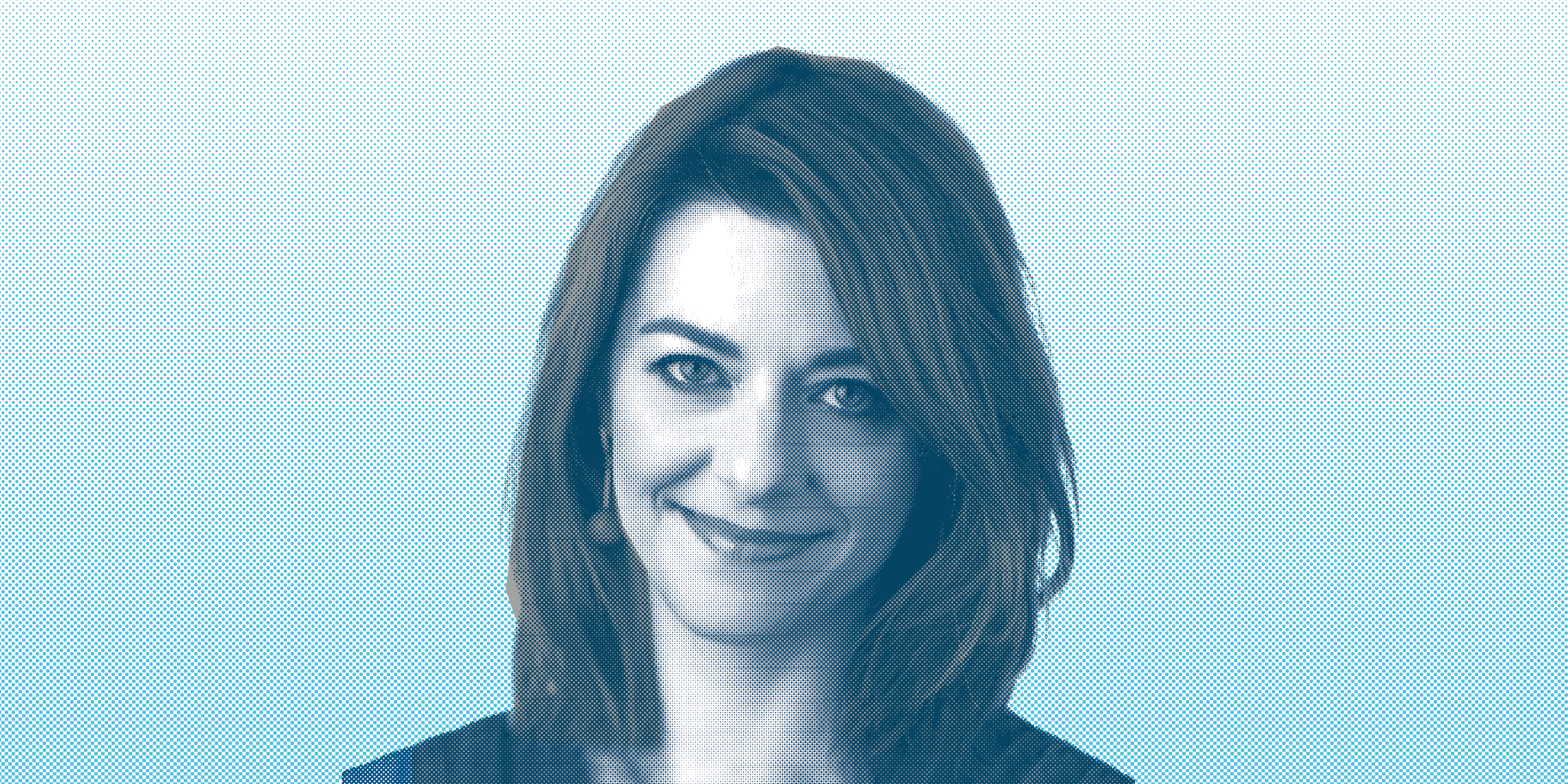Russian society has a great capacity for inventiveness, creativity and ingenuity, this being well demonstrated in their prowess with computers, software and information technology, says Marlene Laruelle in an interview with Jakub Dymek.
JAKUB DYMEK: Your recent research focuses on Russia’s youngest generations. These youngsters do not live for protesting and politicking. Among them, you say, there’s no anti-Putin fervor and opposition spirit, as some Western pundits are so desperate to see. Why’s that?
MARLENE LARUELLE: I think it’s one of the main problems of Western observers of Russia, actually. What they’re always try to identify is some form of anti-Putin upheaval—and it’s simply not always there, just waiting, ready to materialize when you look. It’s the same with the youth— maybe they will turn anti-Putin en masse, at some point in the future. Maybe not.
We see greater uniformization among generations. In plain terms: the young are much more like the old one in Russia than they are in the West. Central-Eastern Europe and Russia are more like that.
What we know is that the youngest generations are not “the opposition party” as of yet and that’s what—to the disappointment of some—we can observe today. You surely can remember [Alexei] Navalny’s protests in 2017. There were many young people there, and it prompted some reports along the lines of: “Oh, yes, there’s the youth in the streets, those born under Putin have had enough!”. You see those young people in the media and that’s what you are tempted to think, but then you look at the surveys and the actual data and there’s a wholly different picture to be seen. (Also, there’s the question of what’s characteristic for the entire generation and what’s simply characteristic for people of a certain age—because these two may be entirely different things altogether).
Out of these two images—pictures of Russian youth participating in protests and survey data about the same young people—the latter is much more nuanced.
We shouldn’t project our own political desires and expectations upon those who we’re speaking about?
We most certainly should not [laughs]. That’s basically what I’m saying, yes.
Fair enough. So what’s the real picture, the one the research presents?
First, we see greater uniformization among generations. In plain terms: the young are much more like the old one in Russia than they are in the West. Central-Eastern Europe and Russia are more like that—and it also goes against some researchers’ (mis)conceptions about generational differences in post-communist societies. The prevailing platitude was that those born after Communism must be different from those born in it. Well, not so much, it seems. Of course, there are some differences, but not as big as one might think there would be.
Let’s hear them.
The young are similar to the old when it comes to approval of Putin—they’re very pro-Putin. Additionally, they’re supportive of the government, sometimes even more so than the older generation. And this is perhaps because they’re less politicized overall. But they’re at the same time less anti-Western than their parents and grandparents. Hostility towards the West rose among the young, just as in the rest of the general population, during the Ukrainian crisis, but then it returned to lower levels.
The same applies to attitudes towards both the EU and the USA. The youth are more open to gays and migrants, any group they would identify as somehow “different” from the majority. The difference in attitudes between the “millenials” and gen-Z and the older generations is not a landslide, but there is a gap.
This is not to say that the Russian youngest generations are tolerant towards minorities and pro-western as a whole—that’s not the case! It just means they’re less intolerant and biased against certain nationalities and groups than their parents and grandparents were.
Which means what exactly?
It’s part of a broader shift towards individualism, understood as “everybody can do what they want” because we all should be entitled to and “I don’t want anybody to interfere in what I’m doing”. It’s not as much liberalization of societal norms as benevolent indifference. It’s not an embrace of diversity, but, of course, progress from outright chauvinism, fear and insularism.
The young are similar to the old when it comes to approval of Putin— they’re very pro-Putin. Additionally, they’re supportive of the government, sometimes even more so than the older generation.
What is the profile of most prominent youth movements? One would assume it’s the ultra-conservative, right-wing militant groups like “Nashi” or biker-gangs who are the most powerful and visible.
I wouldn’t say, in light of what we know, that it’s true. You have many youth subcultures and the majority of them are not politicized at all—they form around cultural phenomena, music, desired ways of life and so on.
Among those who are political however, this is true to some degree: the far right groups enjoy relatively high visibility thanks to their organizational skills, discipline, acceptance of hierarchy and long-standing traditions. You have emerging orthodox-conservative paramilitary organizations, for example, who espouse these principles. There’s no evidence, however, that far-right groups are more popular among the young, that they are popular in general, and that their visibility is also a factor of being excessively studied and reported on. This is, in contrast to, for example, the recent revival of the independent left. This is extremely interesting because it resembles (in an entirely different context) similar trends in the UK, Western Europe and even USA where so-called “millennial socialism” is taking off.
Who is the most visible then?
Social media, especially YouTube, serves as the main platform for expression, taste-making and production of identities. But the “big names” in this sphere are not political in any sense, nor are they traditional media personalities—instead these are tech-bloggers, fashionistas, make-up experts and all those leaders of teenage culture.
One very notable exception is this guy Yuri Dud—one of the main, or “the main”, journalist of this new media environment. Dud, who is around 30 years old, presents interviews with political personalities, rappers, writers, actors, business people and so on… Now he has between 2 and 4 million subscribers in Russia alone and his lengthy, quality interviews brought him a position of great fame and influence among the youngest consumers of media.
So what kind of archetype does he represent?
Opinionated, but far from punditry, stylish, cool, “in-the-know”, patriotic but speaking slang and listening to rap music. He’s political, but not partisan, in a way many young people admire—he’s unafraid to ask a politician difficult, personal, head-on questions but doesn’t force any straightforward agenda. Except one maybe: he constantly presents the 1990s—“the nineties”—as the time of terrible corruption, confusion and social unrest. The 1990s were bad and corruption is bad. This resonates with a certain strand of patriotism— he, like many other many young people, declares love for Russia and being proud of their Russian citizenship, but at the same time decries today’s elites, political class, corruption and cronyism, hypocrisy and cynicism of the older generations and so on…
Which isn’t unlike the anti-elitism of many millenials in the West.
With the difference that in many Western European countries, while the youth is indeed anti-elitist and against traditional political parties, their allegiance and primary identity is “European” not national. Their sense of pride comes from being part of a larger community of values and freedoms, not a nation-state. The combination of patriotism-nationalism with anti-establishment sentiments is more typical of young people in post-communist societies: from Poland, Slovakia, Hungary to Russia.
Another things interest me here: why did you say the youth in Russia is pro-Putin and anti-Putin at the same time?
18-year olds today were born when Putin was already Russia’s president. And these past 18 years were relatively good for Russia, compared to what a national humiliation the 1990s were. It turns out that for that generation Putin is not a human being any- more, but rather an embodiment of Russia itself, he is a symbol, a personification of the nation and the state. A brand.
So, depending on how you ask the question in a survey, the same people can be for or against Putin. They love, support and respect Putin the symbol. Putin the politician less so. People, for example, answer affirmatively when asked if they think Putin cares first and foremost for himself or if he is out of touch with real problems and so on…
What’s the significance of the Russian-speaking Internet, the Runet, in all of this?
Runet is indeed a world in itself. Interestingly it has grown into what it is today organically, without state planning for what Runet is to become. Russian-speakers invented a lot of their software and platforms: Yandex, Vkontakte, Odnoklassniki and so on… So today young Russians indeed live in a “different” Internet, social-media world. At the same time, they’re consuming the same media their counterparts in the West do: rap music, YouTube videos, memes. They’re aware of what is trending in both Russia and Japan or South Korea or the USA for that matter.
So in some ways, Russian youth does have access to a richer, not poorer, cultural environment thanks to these parallel communication realities?
Exactly. It’s not a closed-off world, by no means. Internet users in Russia have access to both these nation-specific, homegrown services and a global network. This gives them a level playing field to be culturally innovative. Loot at Russian rap music is one of the examples.
Social media, especially YouTube, serves as the main platform for expression, taste-making and production of identities.
This innovativeness, combined with the richness of Russian cultural tradition and a certain kind of nostalgia and curiosity for everything Soviet/Russian in the West enabled young creators, artists, musicians to produce a certain “brand” for Russia, one that is trendy and fashionable.
Today young Russians indeed live in a “different” Internet, social-media world. At the same time, they’re consuming the same media their counterparts in the West do: rap music, YouTube videos, memes.
Is the state trying to tap into that potential to exploit it somehow?
Yes, the Kremlin observes these phenomena and measures what it can capture for themselves. Although it isn’t easy like that to point and say, “oh, yes, here we see how the regime exploited the youth culture”. But look at it this way: Russia is a “weak superpower”. They want to have the status of a superpower without really being able to afford it. So they try to use the resources they have at their disposal and that are cheap for them to exploit. And what, if not human capital, is cheap in Russia? Russian society has this great capacity for inventiveness, creativity and ingenuity—well demonstrated in their prowess with computers, software and information technology. What young people were tinkering with 10 or 20 years ago—on-line media, software, hacking—is already being weaponized and used, both in “soft” and “hard power” measures.
There’s no reason to doubt that more cultural creation and the capacity of today’s youth will benefit the Russian state in the years to come.
Marlene Laruelle

Currently serves as associate director of the Institute for European, Russian and Eurasian Studies (IERES) at George Washington University and is co-director of the Program on New Approaches to Research and Security in Eurasia (PONARS). Her latest book is “Russian Nationalism. Imaginaries, Doctrines and Political Battlefields” published by Routledge in 2018. She works on political, social and cultural changes in the post-Soviet space. She explores the transformations of nationalist and conservative ideologies in Russia, nationhood construction in Central Asia, as well as the development of Russia’s Arctic regions. She has been the Principal Investigator of several grants on Russian nationalism, on Russia’s strategies in the Arctic, and on Central Asia’s domestic and foreign policies from the US State Department, the Defense Department, the National Science Foundation, Open Society Foundations, Carnegie Corporation of New York, the Henry Luce Foundation, etc.


